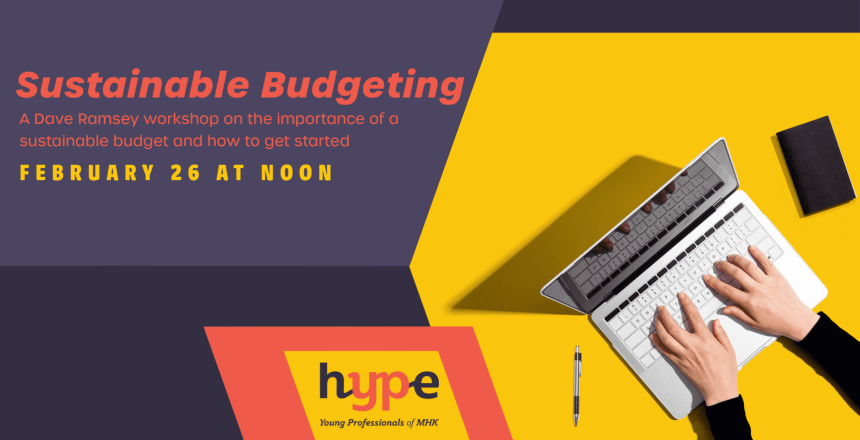On February 26, the Hype Develop team provided an online learning opportunity featuring Manhattan-native Joshua Schumm, a certified Dave Ramsey coach. Josh is also recognized as one of the top three coaches within the region as he has helped his clients grow their wealth by over $2 million dollars since 2019.
Statistics show that on average, current retirees have $25,000 or less in their 401K retirement plan – and that’s it! With that knowledge in hand, Josh guided the group through three key steps to having a better financial outlook heading into their careers: emergency funds, budgets, and application.
Pre-2019 (and pre-COVID) rankings have the median household income at $63,688. Working 40 years, this adds up to over $2 million that passes through a household in a typical lifetime. Considering that only $25,000 is put aside for retirement, one often wonders, “where does it all go?” The average consumer debt, not including mortgages, is $38,000 per household. Seventy-seven percent of individuals are currently living paycheck to paycheck – leading 92% of us losing sleep over finances.
The good news to all of this? You are in control! Take command of your finances and build a disciplined plan moving forward. The first tool in your toolbox is to develop an emergency fund. Seventy percent of survey participants note that they would have to put a $400 medical emergency on a credit card. Having an emergency fund set aside will allow you the opportunity to cover expenses such as these without the stress or worry of the credit card payment or the interest it accrues. Start with a beginning balance of $1,000 to provide breathing room between you and whatever unexpected expense may arise. Set this balance aside and discipline yourself not to spend it on non-essential items such as a vacation, eating out, or a cushion in your checking account. Keep the money safe! Put the emergency fund in a separate account that you know can only be accessed in times of need.
With this in mind, we can actively use the second tool: a budget. Your budget will be proactive and not reactive. If we establish the $1,000 reserve or emergency fund, it allows us to have that breathing room to plan instead of reacting to the unexpected expense. Design your budget based on your goals as a spending plan. Josh led the group to realize three revelations during our time contemplating our budgets: 1. I spend too much; 2. It says I should have extra, but where is it; 3. I’ve never really thought about it this way…
The final key that Josh addressed was simply putting these tools into practice and application. Start now, be disciplined, and check in on your own finances regularly at a proactive interval.
If you would like to learn more about managing finances, join us on March 26 at noon for the next Dave Ramsey Workshop: Tackling Debt. During this second session Josh will help us uncover strategies and gain a template for a plan to tackle your debt and find freedom.



